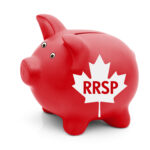In the face of the housing affordability crisis in Canada, the Federal Government launched the First Home Savings Account or FHSA. The FHSA was delivered on March 28, 2023 in the Federal Budget: A Made-in-Canada Plan.
With it comes the promise of allowing prospective first-time homebuyers to get tangible benefits from this new savings account featuring the best attributes of both Registered Retirement Savings Plans (RRSPs) and Tax-Free Savings Accounts (TFSAs).
As of April 1, 2023, folks had the opportunity to open a First Home Savings Account through their local financial institutions.
Why Should I Consider Opening an FHSA?
- To take advantage of the tax benefits: Your FHSA contributions can reduce your taxable income. Income, as well as capital gains (and capital losses) earned in an FHSA, are not included in your annual income (or deductible) for tax purposes. This means income and capital gains can continue to grow and compound in the FHSA on a tax-free basis.
- To grow your savings, tax-free: Any investment income in your FHSA is non-taxable while it remains in your account.
- Save for your first home, tax-free: Pay no taxes on your withdrawals when you use your FHSA towards the purchase of a qualifying home.
Contribution Amounts
The rules around the First Home Savings Account will permit contributions of up to $8,000 per year. This amount is capped off with a lifetime maximum of $40,000. This means that if an individual contributed the maximum $8,000 per year, each year, within five years, they would meet that $40,000 lifetime maximum.
Like RRSPs, but not TFSAs, FHSA contributions are tax-deductible.
Like Tax-free Savings Accounts, First Home Savings Accounts withdrawals are not taxable when used for an eligible purchase. In contrast, RRSP Home Buyers’ Plan (HBP) withdrawals up to $35,000 are tax-deferred but will be taxable if not repaid over the ensuing 15 years. FHSA withdrawals do not have to be repaid.
There is also more good news for first-time home buyers that have saved their loonies. Prospective homeowners will be able to access both the Home Buyers’ Plan (HBP) and the new tax-free first home savings account (FHSA) when purchasing a home.
By the Numbers
We at Canadian Real Estate Wealth wonder if this really translates into sooner home purchases for first-time homebuyers.
The Calgary Real Estate Board reports a 2023 first-quarter median market price for a single-family detached home of $606,400 and the Q1 median market sale price for a townhouse at $370,000. For the same period and market conditions, the median sale price for condominiums was reported as $262,500.
For the answer to the question of whether this translates to a first home faster, we chose to examine the Calgary market. Looking for a REALTOR® with lots of expertise in the Calgary market, we turned to a local Calgarian and the leader of the Jesse Davies team, Jesse Davies, for his analysis.
“With an approximate median sale price for a single-family dwelling home in Calgary of $606,400 has a 5% down payment is $30,320. The $40,000 max on the FHSA is more than adequate for a down payment and gives first-time home buyers a bit of wiggle room to cover some closing and moving costs. On a condominium with a 20% down payment requirement of $52,500, the first home savings account covers the lion’s share of it. It gives clients just starting out an opportunity to close the gap between where they are and having a full deposit. It’s a great first step.”

Qualify and Withdraw
Withdrawals from a First Home Savings Account to purchase a qualifying home must meet the following conditions:
To withdraw funds on a non-taxable basis, the account holder must:
- Be a first-time homebuyer at the time of withdrawal. To meet the qualification as a first-time homebuyer for this purpose where, during the four previous calendar years and during the period of the current year ending 31 days before the withdrawal was made, the individual did not live in a home that they owned.
- Have a written agreement or real estate purchase contract in place before the withdrawal to buy or build a qualifying home (in Canada) before October 1 of the year immediately after the date of the withdrawal.
- Intend to occupy that property as the principal place of residence within one year of acquiring the qualifying home, in other words, from the closing date of the real estate purchase.
- Be a resident of Canada from the time of the withdrawal until taking possession.
- Have a closing date for the qualifying home no more than 30 days before the withdrawal is made.
If the above conditions are met, the account holder is permitted to withdraw the entire balance in the FHSA on a tax-free basis in a single withdrawal or a series of withdrawals.
Take note, Only the First Home Savings Accountholder is eligible to claim a deduction for contributions made to their own FHSA. You cannot contribute to your spouse’s and claim a deduction; however, you can gift monies to your spouse so that they can claim a deduction on their own FHSA contribution.
In the event of your passing, you may designate your spouse as a successor account holder. The surviving spouse would become the new holder immediately upon death, so long as they meet the outlined eligibility criteria to open an FHSA.

What is a Qualifying Home?
Although a bit of suspicion is warranted here, and anyone considering a FHSA should do their own due diligence, what properties meet the criteria of qualifying home is actually quite broad.
The definition includes single-family homes, semi-detached homes, townhouses, mobile homes, condominium units, apartments in duplexes, triplexes, fourplexes, or apartment buildings, as well as a share in a cooperative housing corporation that entitles you to own and gives you an equity interest in a housing unit.
According to Canada.ca, the following single property type does not meet the criteria set out for a First Home Savings Account: A share that only provides you with a right to tenancy in the housing unit. Please click here for more information.
We tapped into Mr. Davies‘ expertise once again for whether the criteria placed on a “qualifying home” matches the type of inventory found in Calgary. Here is what he had to say,
“The qualifying home is very inclusive. The only type of home that appears to be excluded is one that someone only has a share of ownership in, and thus has what amounts to tenants’ rights. Otherwise, it’s pretty open. This openness avoids a one-size fits all solution; if clients need to start out very modestly, that’s built into the FHSA. Even the most modest of home ownership is a super start.”
Where in Calgary Should I Get a First Home Savings Account?
While most major banks will likely carry this type of account by the end of the 2023 year, how much before 2023 concludes varies greatly from institution to institution.
For example, if you bank with CIBC, they’ve promised to offer the FHSA by December 2023, so consider contacting them before you cross the threshold of the branch located at 309-8th Avenue Southwest in Calgary to avoid disappointment.
If you bank with a credit union such as First Calgary Financial or Bow Valley Credit Union, you don’t have to open an account with big-box financial institutions. This is an option available to you through most local credit unions, as well.

In Conclusion
Regardless of your political leanings, the First Home Savings Account, although not able to address the supply shortage of available homes, seems to be a good first step by the Government to put property ownership back in the realm of possibility for many Calgarians, who previously considered it out of reach.
Considering an investment into Calgary real estate? The Jesse Davies team can help you find the right place to put your hard-earned money, whether it be a pre-construction condo, a rental property, or a joint-venture initiative. Reach out to Jesse via email at jesse@jessedavies.ca.
Heather McDowell is a mother and a REALTOR®. Heather has spent most of her real estate career selling residential real estate, and its leasing and has dealt with the additional complexities of the cottage, timeshare and rural properties, and condominiums. She has dabbled in new construction and is expanding her portfolio to include commercial sales and leasing. Heather is also a dedicated volunteer for both the local women’s shelter and a national hospice organization and is an emerging playwright.
Heather describes her focus as diversifying real estate content that not only addresses national matters but explores those issues unique to each province and territory.
You can contact Heather at heather@crewmedia.ca or find her on socials at:
Facebook – https://www.facebook.com/thestoreytellingcompany/
LinkedIn – www.linkedin.com/in/heather-mcdowell-98134118b
Instagram – https://www.instagram.com/hmcdowellrealty/









